Hate Thy Neighbour Part 5: A Never Ending Story
The final piece in a five-part series surrounding Britain's most intriguing football rivalries
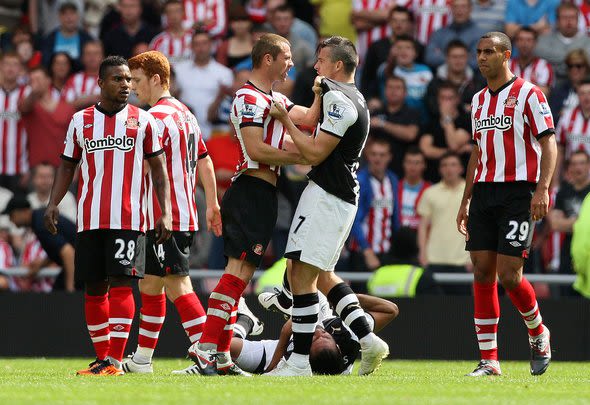
In the mid 17th century, England was in civil war. Parliamentarians, forefronted by Oliver Cromwell, fought King Charles I's Royalists over governance and religious freedoms within the country.
A key location for this confilct was the North East. There were great frustrations that merchants in the Royalist Newcastle had significant advantages over those just down the road in Sunderland. As a result, Wearside became a Parliamentarian stronghold.
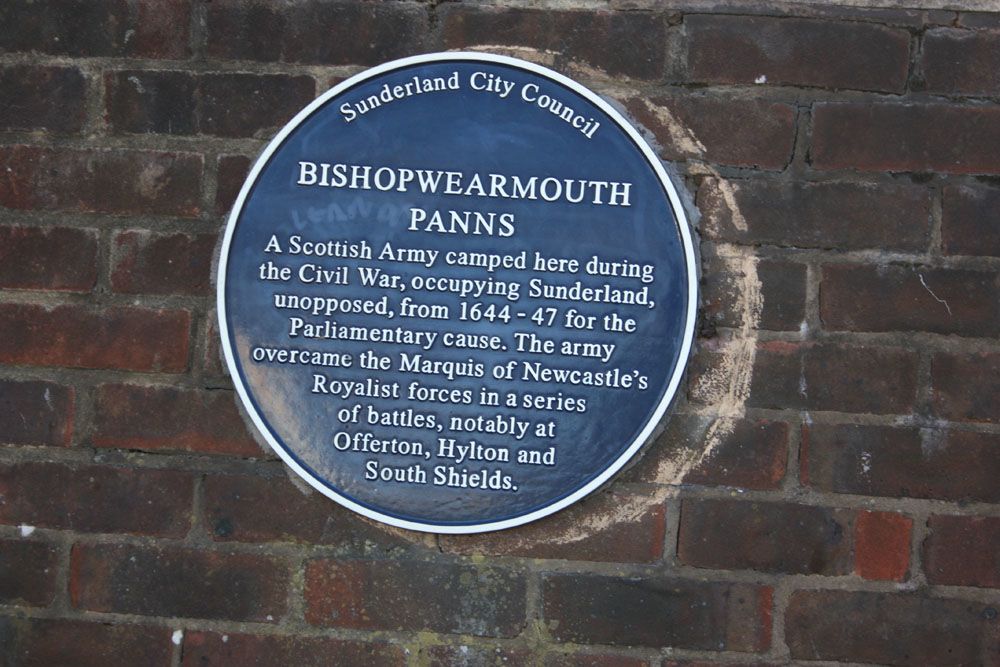
The Civil War is a huge part of the North East's history
The Civil War is a huge part of the North East's history
Fast forward almost 400 years, the two cities remain in opposition, but in a much different battlefield. Rather than Charles and Cromwell, they fight with Shearer and Phillips, black and red, Newcastle United and Sunderland AFC.
The histories of both areas and clubs go hand in hand, forging an extremely tense rivalry.
Progession in Newcastle
Both cities have a long industrial and cultural history, but the thing that residents of both seem to agree on most is that in modern years Newcastle has seemingly left Sunderland behind.
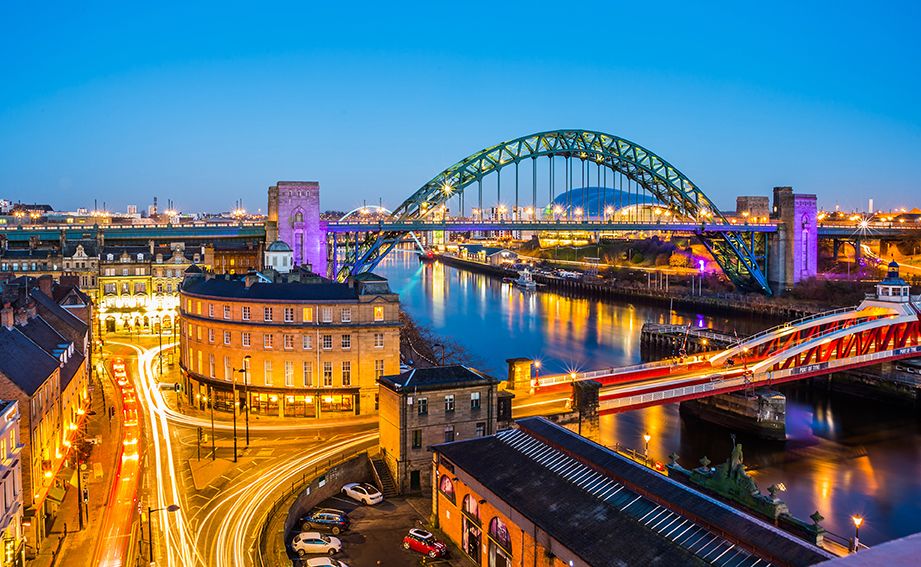
Newcastle City Centre
Newcastle City Centre
Sunderland fan Connor Bromley, of Mirror Football, said:
"I don’t think I would be offending anyone if I said that Newcastle was a nicer place than Sunderland and the largest reason for that is Newcastle gets a lot more money spent on it infrastructurally."
Sky Sports News' North East reporter, Keith Downie recalled:
"I lived in Sunderland when I first moved (from Scotland) but I eventually moved to Newcastle as it seemed to be the place where more things were happening. From the outside looking in Newcastle is seen as the epicenter of the North East, whether that's fair or not."
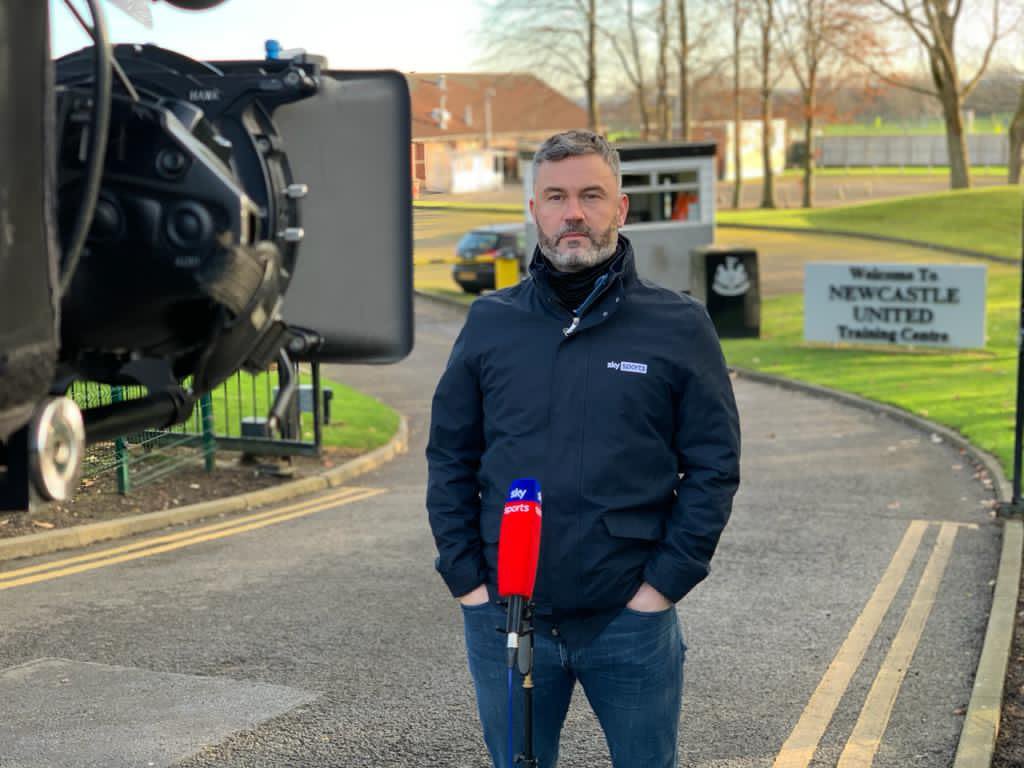
Downie outside Newcastle's training ground
Downie outside Newcastle's training ground
Bromley also mentioned how this gives Mackems "a chip on their shoulder" and that Sunderland is not how it is often percieved:
"Sunderland has a lot of nice beaches, amazing culture, it has a lot of positive things and that chip on the shoulder morphs into the football."
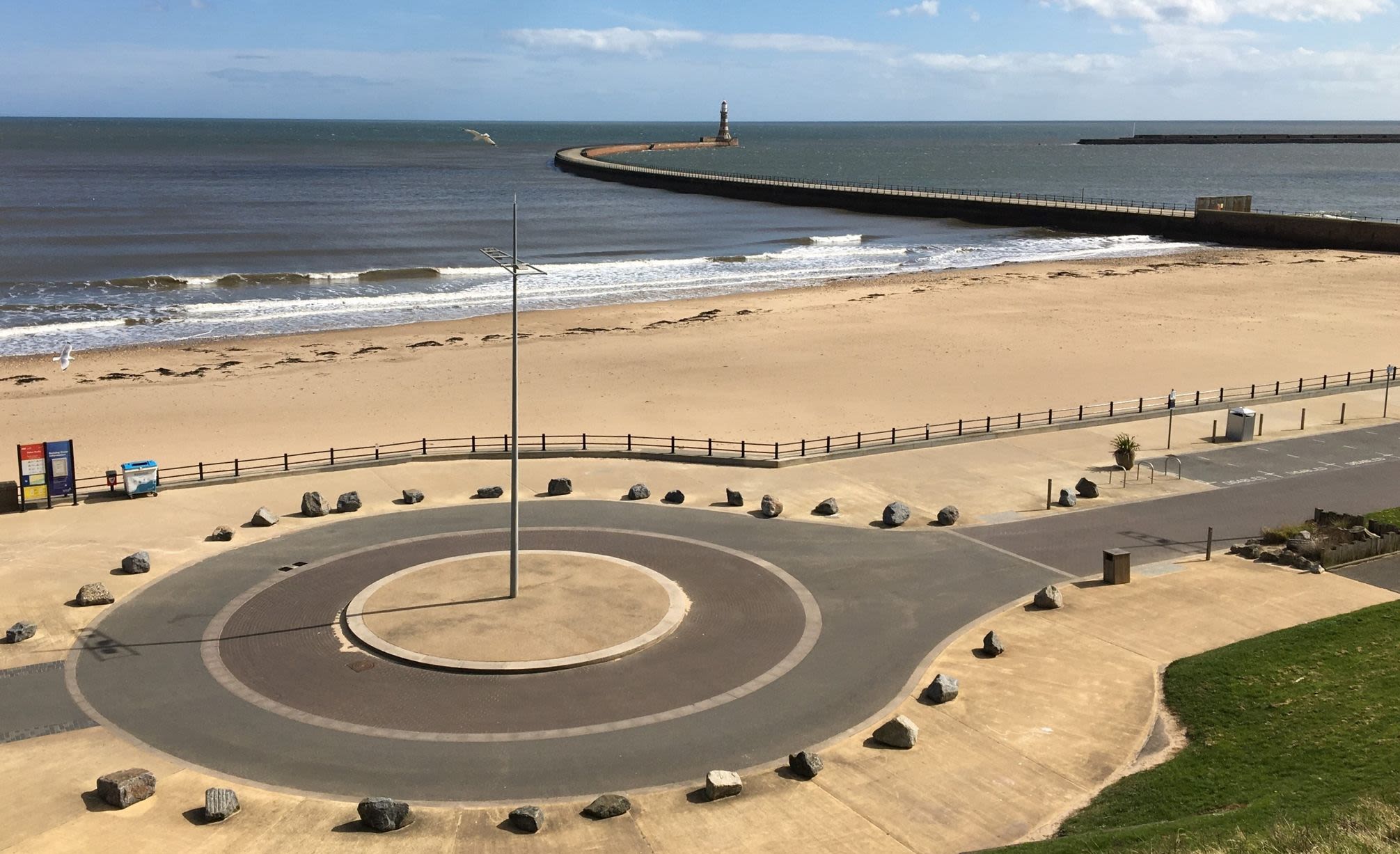
Roker beach in Sunderland
Roker beach in Sunderland
Sunderland supporter and host of the What The Falk podcast, Graham Falk admitted that he enjoyed a lot of things about the Toon, but said:
"Sunderland feels a lot more real these days. It's rough and ready. You find a lot more characters in Sunderland and I like that."
A Tale as old as Tyne(-Wear)
While the city centres and funding may separate the two, the success of their football clubs are extremely similar.
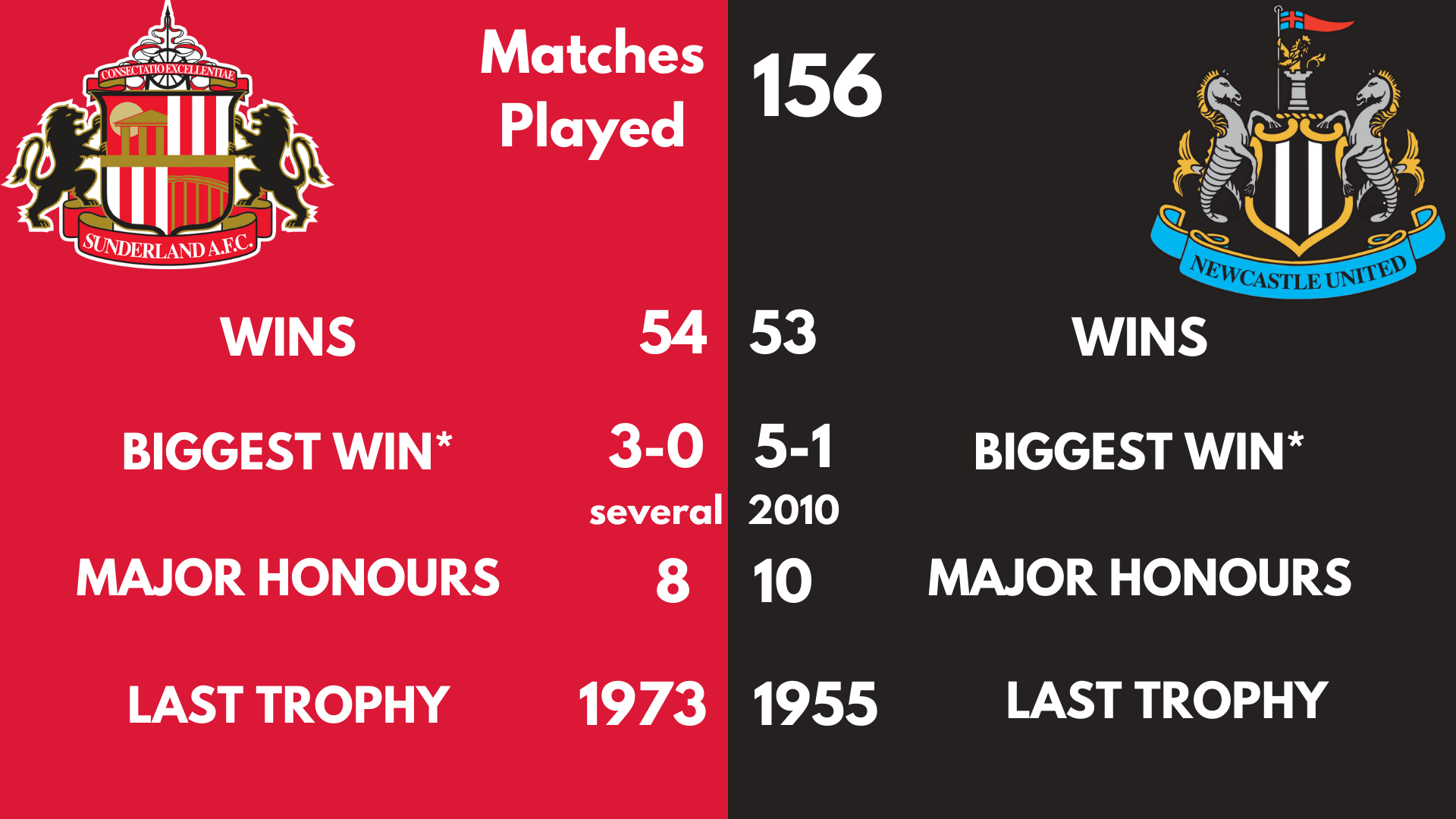
The Athletic's Newcastle correspondent, Chris Waugh said:
"Both clubs are famous for not winning anything. It becomes more important to beat the other."
On Halloween 2010, it didn't seem to feel so equal as the Magpies ran riot with a 5-1 win.
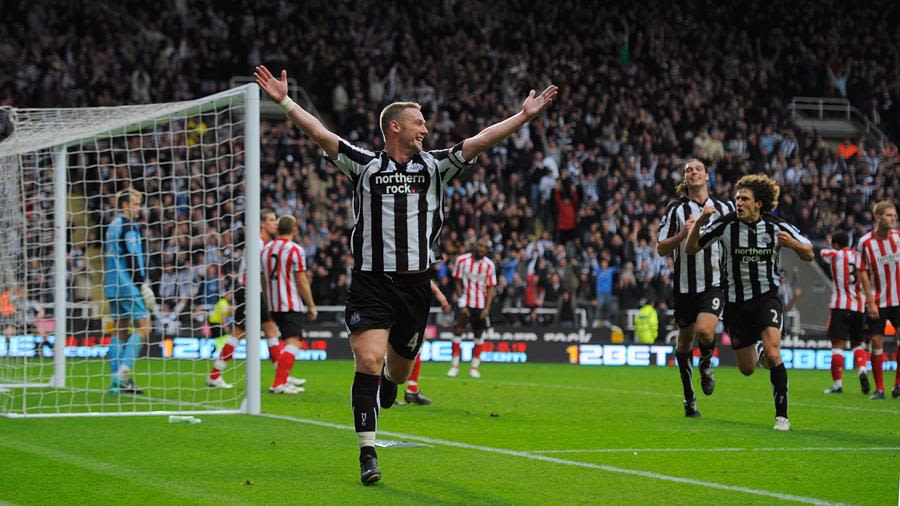
Kevin Nolan bagged a hat-trick on the day
Kevin Nolan bagged a hat-trick on the day
Falk recalled the events of the day:
"I was in a taxi when the first couple went in and I met my dad and uncle in a pub for the second half. I went back to my uncle's after and we just drank in silence."
Waugh explained how the opposite of that was being felt on Tyneside:
"The impact that had on the city and the enthusiasm that created isn't comparable to any other result I can remember."
Nobody could've predicted what was to come.
Six in a Row
NUFC 0-3 SAFC - APR 2013
SAFC 2-1 NUFC - OCT 2013
NUFC 0-3 SAFC - FEB 2014
NUFC 0-1 SAFC - DEC 2014
SAFC 1-0 NUFC - APR 2015
SAFC 3-0 NUFC - OCT 2015
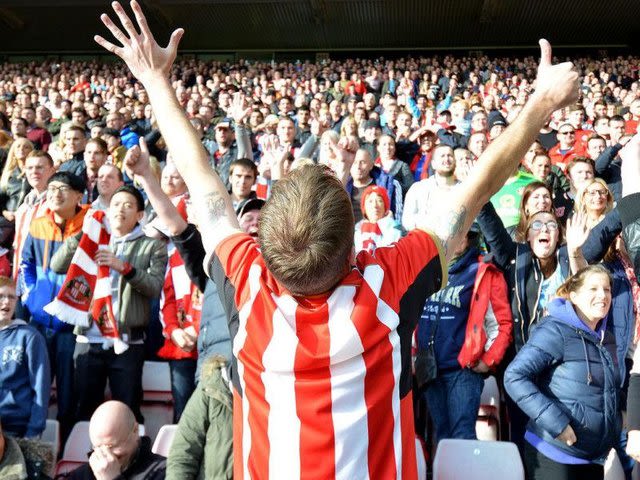
Sunderland bested their rivals on six consecutive occasions
Sunderland bested their rivals on six consecutive occasions
Losing streaks happen, but over two years of defeats against your bitter rivals is very mentally testing. Waugh said:
"That really had a big psychological impact on the fanbase. It wasn't just that Newcastle were getting beat, some of the results were really embarrasssing.
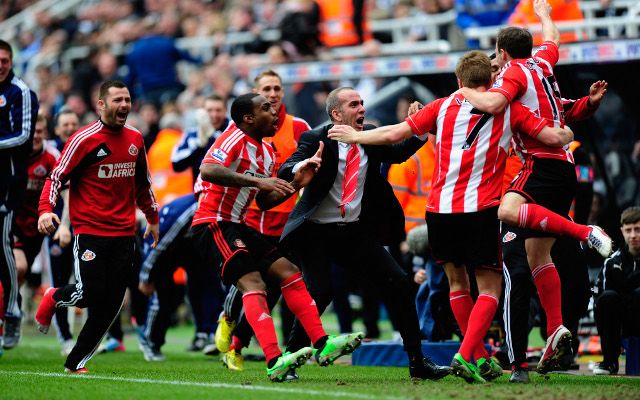
Three of the results were 3-0
Three of the results were 3-0
"It became an obsession that we can't lose another derby."
For a lot of Sunderland supporters, including Falk, it felt like revenge and vindication:
"When Vaughan scored (first win) it was pandemonium. I'm not ashamed to say, because I was born in Shields and got so much crap all my life, I just sat down and cried because I thought thank god you've felt what I've felt for years."
The 1-0 in 2015 saw one of the best goals in Tyne-Wear derby histoy as Jermaine Defoe smashed a left footed volley past Tim Krul.
Defoe's wonderstrike stuck out in Downie's memories of the derby, he said:
"I spoke with Jermaine about the goal, he said he'd never felt like that after scoring a goal before. The atmosphere was electric that day."
The run was put to an end with a 1-1 draw in March 2016, since then Newcastle went down but re-established themselves as a Premier League club. Sunderland currently sit in League One, but despite the division superiority, Newcastle are still eager to properly get one over on their rivals. Downie said:
"(The record) has given Sunderland fans a stick to beat Newcastle with despite their position. It definitely still plays on their minds"
Passion trumps all
Results and history of course play a huge role in the rivalry, but perhaps it's biggest driving factor is more of a joint effort than some realise. The two cities pride themselves on their passion for their turf and their football teams. Former Sunderland captain Gary Bennett noted:
"I wasn't aware of the derby before I moved, but after playing in my first one it really opened my eyes to what football meant up here.
"In the build up, it's all anyone can talk about. In the North East, family comes first, then it's football. If you win you're held in high esteem, if you lose you want to keep your head down."
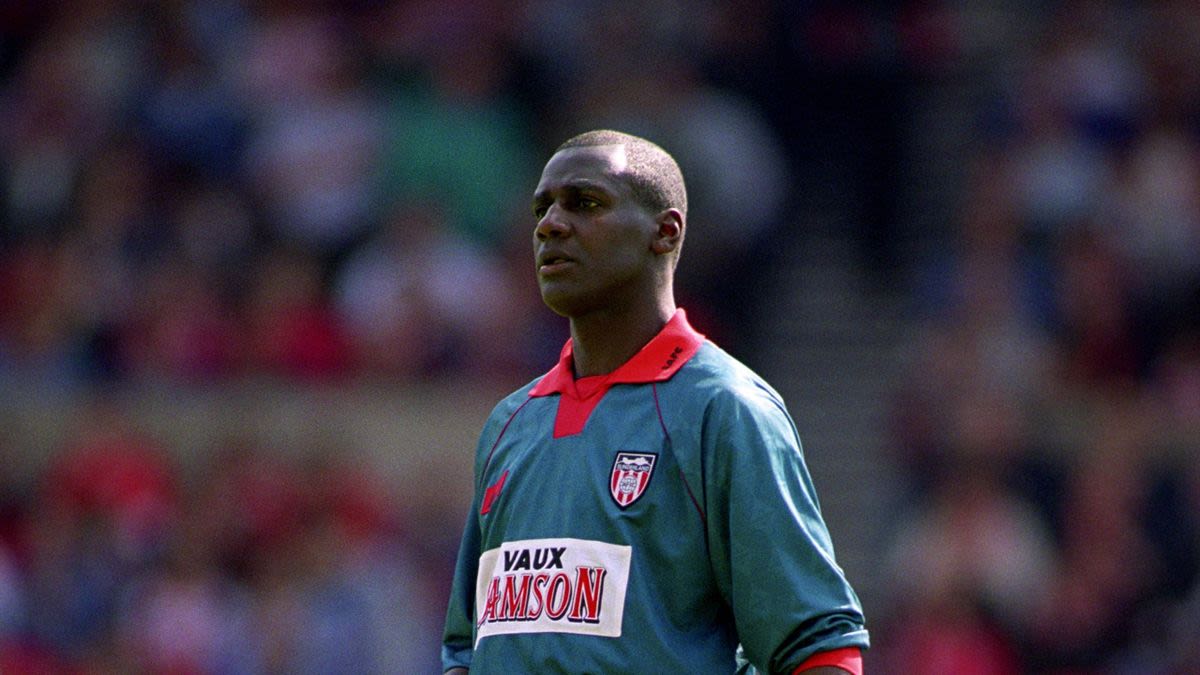
Bennett played for Sunderland for 11 years
Bennett played for Sunderland for 11 years
There is almost a sense of connection within the divide, as Waugh points out some of the same lazy observations get aimed at both:
"Both have passionate fanbases who don't expect much despite ignorant portrayals from elsewhere."
And that passion is extremely audible and visible on matchdays as Downie, who used to cover Celtic and Rangers, described the fixture as the closest thing to an Old Firm he's seen.
The everlasting connection between football and the working class has been a mainstay of British culture, especially in the north. These clubs battle fiercely but with the same fire in their hearts and pride on their shirts, as Waugh put it:
"They both just want something to believe in."
The common link between rivalries throughout this series, despite differences in political factors, national pride, escalated hatred and local bragging rights, has been passion.
Football thrives because of the people who follow it and tehir devotion to the cause.
A football fan will travel across the country and further (if they're lucky) watching their side win, lose or draw.
But no matter how big those games are, how elating the victory or deflating the defeat, nothing quite comes close to that feeling on derby day.
